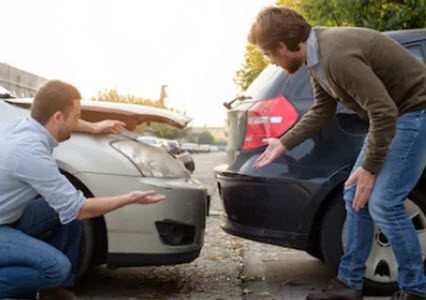Like many other obscure federal laws, the Graves Amendment is completely meaningless unless you are in a certain situation. That situation is a vehicle collision which involves a U-Haul truck, Enterprise car, or other rented vehicle.
Typically, when drivers in borrowed vehicles cause crashes, the vehicle owners could be responsible for damages, under the negligent entrustment rule. But commercial negligent entrustment cases are different. The Graves Amendment limits owner liability in these cases.
The stakes are high. Fully-loaded U-Haul moving trucks weigh up to 33,000 pounds. If incompetent operators drive these massive vehicles and cause high-speed crashes, the results are often catastrophic.
Despite the Graves Amendment, a Brandon personal injury attorney might be able to obtain substantial compensation in these situations. That compensation usually includes money for economic losses, such as medical bills, and noneconomic losses, such as pain and suffering.
49 U.S.C. § 30106: A Closer Look
In the late 1990s, there were a string of high-dollar judgements against companies like Enterprise Rent-a-Car. These companies threatened to cease operations in several states if the aforementioned negligent entrustment laws did not change. Congressman Sam Graves (D-MO) responded by attaching the provision which bears his name to a large transportation bill.
This special interest policy rider is like many others. Congress held no hearings, the provision itself does not define key terms, and the only legislative history is a few minutes of floor debate. So, it’s impossible to tell what the Graves Amendment means simply by looking at it.
What is known is that there are two provisions in 49 U.S.C. § 30106 which supposedly immunize companies like U-Haul against liability judgements. But good personal injury lawyers do not just know the law. They know how to make the law work for victims.
Not Otherwise Negligent
One such requirement is that the owner or agent was not otherwise negligent during the rental transaction. In this context, negligence often means a failure to verify a renter’s drivers’ license. In negligent entrustment matters, operators without valid licenses are usually incompetent as a matter of law.
In the early 2000s, when lawmakers approved the Graves Amendment, there was no way for retailers to verify drivers’ licenses beyond a visual inspection. Today, such technology is readily available.
In fact, it is arguably the industry standard to run a DMV verification before completing a vehicle rental transaction. Violating an industry standard of care is usually conclusive evidence of negligence.
As mentioned, drivers with safety-suspended licenses are usually incompetent as a matter of law, even if the license is facially valid. Generally, a poor driving record is circumstantial evidence of incompetence. Victim/plaintiffs must introduce additional evidence to establish owner liability.
Trade or Business
Graves Amendment immunity applies if the company was in the trade or business of renting vehicles. Once again, the provision does not define this key phrase. So, lawyers must look elsewhere for such a definition.
Attorneys frequently use the Uniform Commercial Code in retail contract dispute matters. The UCC defines “merchant,” which is a similar term, as a:
- Dealer in a particular kind of good, or
- Person with specialized knowledge.
Arguably, most vehicle rental establishments do not meet either of these standards.
Most such companies are moving supply companies which happen to rent a few truck on the side. They are not truck rental dealers per se. A flower shop is still a flower shop, even if it also sells gifts, snacks, and non-floral items.
Moreover, most employees at such establishments have no specialized knowledge about the vehicles available to rent.
Vicarious liability theories like negligent entrustment are often quite important in rented vehicles claims. Typically, the individual tortfeasors (negligent drivers) have little or no insurance coverage.
Reach Out to Experienced Attorneys
Despite the Graves Amendment, owners are usually still liable for damages in vehicle rental cases. For a free consultation with an experienced Brandon car accident lawyer, contact Reed & Reed, Attorneys at Law. We have four area offices (St. Petersburg, Lakeland, Tampa, and Clearwater).

